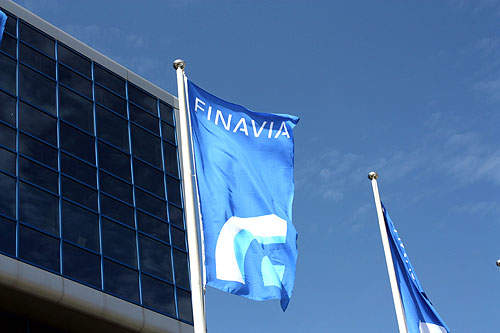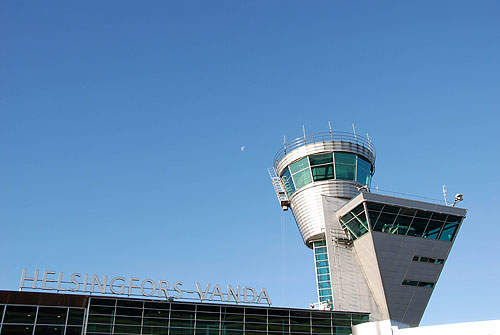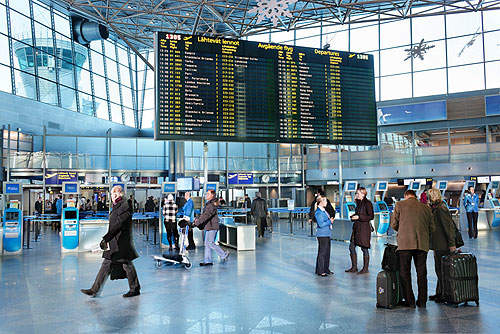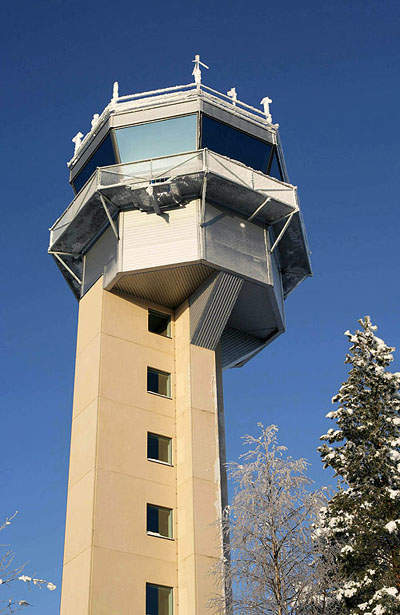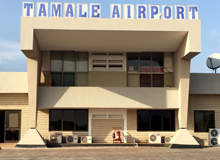Finavia is a service company that creates connections to the world through its network of 25 airports. Finavia is responsible for controlling the use of Finnish airspace and providing air navigation services at Finnish airports. Finavia’s strong areas of expertise include air navigation training, flexible airspace solutions and their design. We are at the forefront, if not the pioneers, of European development work for ATM systems.
Finavia is actively involved in influencing the future and development of air navigation in international forums. Finavia wants to influence the future scenarios of European air navigation services. This is made possible by consortiums such as NEAP and NORACON.
Finavia has about 1,800 employees. The entire group employs around 2,500 people. Around 570 Finavia employees work in air navigation services at the airports, area control centre and centralised national service units. Around 300 of them work as air traffic controllers.
Air traffic controller training
Finavia’s specialist training institute Avia College provides high-quality air traffic controller training. The Finnish air traffic services are renowned for being precise and free of disturbances in spite of the challenging climatic conditions of the country.
Finavia has been training its air traffic controllers since the 1950s. In addition, Finnish air traffic controllers have successfully provided training abroad. Avia College also provides air traffic controller training for international customers.
The training provided at Avia College covers the entire scope of air traffic services, from basic air navigation training to specialist training for top professionals. Avia College also trains technical experts in the field. The requirements of the International Civil Aviation Organization (ICAO) and Eurocontrol form the basis of all training activities in the field of air navigation.
Aerodrome control system
When the aerodrome control system is launched at Helsinki Airport by the end of 2010, it will be the most modern in the world. The paper flight strip system will be abandoned for good after December 2010. Aircraft route clearances are in a digital format in eSTRIP and this makes it possible to send the data directly to the aircraft’s flight deck.
Thanks to the ground traffic development project at Helsinki Airport, it now has a totally modern technical operating environment. Two new radar antennae and a separate multilateral positioning system utilising the latest technology have been installed at the airport. They enable enhanced control of aircraft and vehicle movements.
Continuous descent systems
More than half of all planes landing at Helsinki Airport now do a continuous descent approach. Green landings, of the so-called CD (continuous descent) approaches, were introduced nine years ago. The airspace of Helsinki Airport and the aviation methods deployed allow the planes to do a CD approach almost always. In a CD approach, the flight path and profile are planned so that there is no need for a horizontal flight stage before the descent. The application of power and deceleration have also been optimised to reduce both noise and fuel consumption. Fuel savings of up to 10%–30% are possible during the approach stage.
Finavia is a pioneer in the application of continuous descent, and it will be in a position to provide useful information for similar projects in other European countries.
Single control system for national airspace management
Finavia’s two air navigation centres will be merged into one area control centre on 18 November 2010, after which Tampere will control seven airspace sectors instead of the present five.
The AMC (airspace management cell) works in conjunction with the area control centre, and its revised working methods ensure that the needs of both civil and military aviation regarding airspace usage are taken into account effectively and equally. Civil and military aviation are served using the integrated air traffic control system where the air traffic controller may provide services to both civilian and military aircraft alike.
Airport maintenance systems
Finavia’s maintenance organisation keeps all airports in full operating condition irrespective of weather conditions. Finavia is the world’s leading expert in the management of winter conditions at airports. Environmental aspects are in particular taken into account when using and handling de-icing chemicals, for example.


